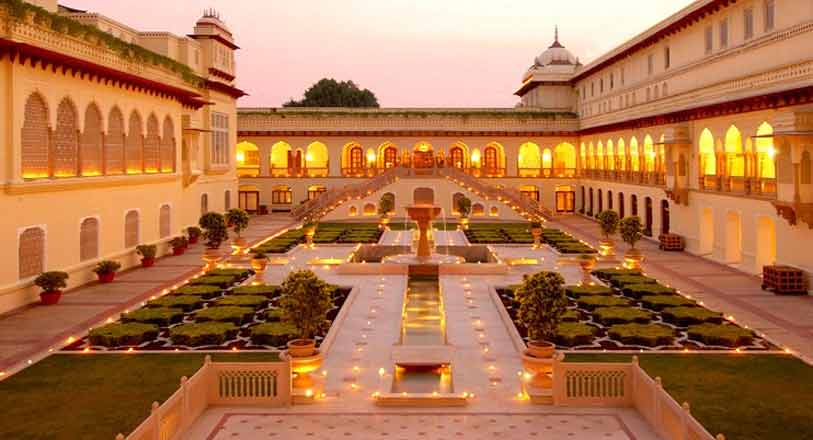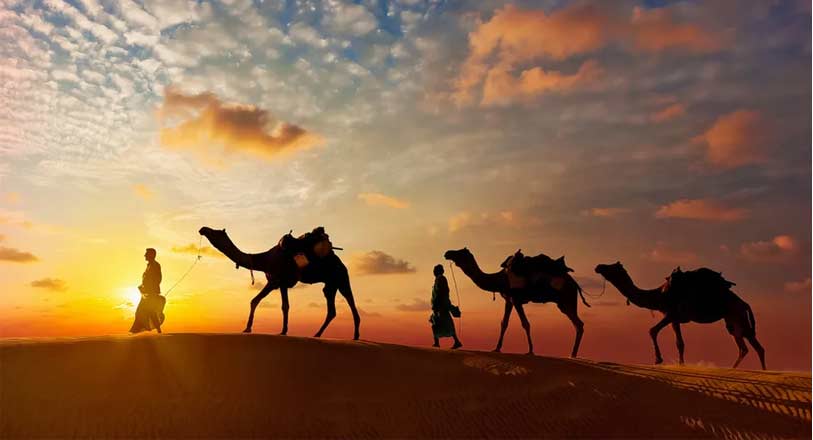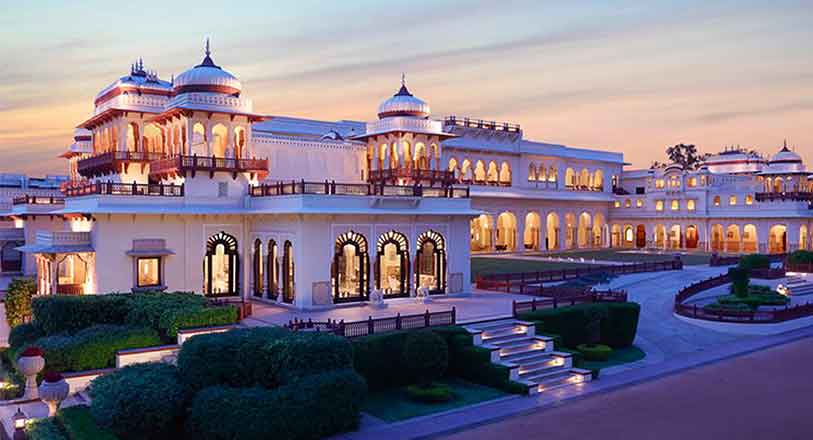Introduction to Nahargarh Fort
Nahargarh Fort is basically a wonderful architectural treasure of Rajasthan, set atop the Aravalli hills that boast of giving a wide view of the Jaipur city. This architectural beauty was constructed in the year 1734 by Maharaja Sawai Jai Singh II, the founder of Jaipur, basically as a retreat and a defense structure for the royal family. Known as “Abode of Tigers,” Nahargarh Fort was a place of residence and refuge for people in times of invasion. Nowadays, it has become one of the most popular tourist destinations in the city. With our Jaipur tour packages, explore the best of Jaipur’s architecture, culture, and cuisine.
Nahargarh Fort Tourist Information |
|
| Famous Name | Nahargarh Fort |
|---|---|
| Famous for | Magnificent architecture and a stunning view of the city |
| Location | Krishna Nagar, Brahampuri, Jaipur, Rajasthan, 302002, India |
| Entry Time | 10:00 am |
| Closing Time | 5:00 pm |
| Entry Fee |
|
| Required Time for Visit | 3-4 hours |
| Photography Restrictions | No |
| Entry Tips |
|
| Facilities for Visitors |
|
History of Nahargarh Fort
Nahargarh Fort was constructed as one of the three defenses of Jaipur along with Amer and Jaigarh forts to provide defense to the city against invaders. It is said that the construction of the fort was haunted by a prince named Nahar Singh Bhomia, who obstructed its progress. The construction was completed only by consecrating a temple to give his spirit peace, and hence, the name has come, which is Nahargarh. In the 19th century, under the patronage of Maharaja Sawai Ram Singh, considerable extensions and renovations were carried out, including several palatial quarters.
Construction and Origin
Nahargarh Fort is a blend of Rajput and Mughal architectural styles, with its strong walls and strategically placed bastions, which make the fort stand out. The fort is made primarily of locally available sandstone and marble and therefore possesses rustic beauty with a very distinct outlook.
Significance of Nahargarh Fort to Rajput Architecture
It occupies a prime place in Rajput architecture as it combines both defensive considerations and residential quarters. Its strange features of rugged, defensive fort appearance come with palatial quarters ornamented with the finest frescos and jharokhas, or overhanging enclosed balconies. Its site on the Aravalli hills exemplifies the principle of sitting forts on elevated terrains to achieve strategic advantages in war practiced in Rajputana.
Architectural Marvel of Nahargarh Fort
Nahargarh Fort is one of the masterpieces of Rajput architecture, which is both a defence and residence. The outward façade of the fort features big gates, beautifully carved buildings, and a balanced arrangement of rooms within it. Inside are numerous rooms, corridors, and balconies that speak of intricate craftsmanship, especially in the case of Madhavendra Bhawan, a palace inside it. This was constructed by Maharaja Sawai Madho Singh, exemplifying the more refined frescos; arched doorways, and painted interiors in superlative examples of 19th century Rajasthani artistry.
Design and Layout
Madhavendra Bhawan is the central part of the fort, and it is a two-storied palace. Within it, there are nine suites for the king and his queens, with each consisting of a bedroom, kitchen, and lobby area. The rooms are all interconnected through narrow corridors.
Unique Features and Symbolism
Nahargarh Fort also has many distinctive features such as the fortification walls running on either side of the hill, making for a spectacular silhouette against Jaipur’s landscape. The fact that the temple of Nahar Singh is also located within the fort, built to soothe the prince’s spirit adds a spiritual value to the history of the fort. The combination of military edifices with dwelling places symbolises the concept of the Rajput method of making purposeful and attractive buildings that depict their lifestyle and faith.
Key Highlights of Nahargarh Fort
Nahargarh Fort is famous for several key highlights that continue to excite tourists today. The beautiful architecture, historical fame, and panoramic views make it a place that should not be missed in Jaipur.
1. Panoramic Views of Jaipur
The fort provides amazing panoramic views of the city of Jaipur, especially from the rooftop terraces and ramparts, allowing one to take in a panoramic view of the surrounding landscape. It is truly an amazing sight to behold during sunrise and sunset.
2. Madhavendra Bhawan
Madhavendra Bhawan is a beautiful palace found within the boundaries of the fort. The palace boasts an attractive collection of rooms, courtyards, frescoes, arc doors, and lovely decorations that add to its beauty.
3. Temple of Nahar Singh Bhomia
Another part of this fort is the temple of Prince Nahar Singh Bhomia. It is said that he was a maniac and his soul needed a temple, which its construction could satisfy; therefore, his soul remained calm, and the construction of this fort could be completed.
Best time to Visit
The months of October through March are the ideal times to visit Nahargarh Fort because of the pleasant, temperate weather that allows visitors to explore the fort and take in the surrounding natural splendour without being overheated by the summer sun.
Places to Visit near Nahargarh Fort
There are also several other places to visit in Jaipur that are near Nahargarh Fort.
Amer Fort
Amber Fort is a Heritage Site of UNESCO. It has grand architecture and glittering beauty of Sheesh Mahal or Mirror Palace, with meticulous mirror work.
Jaigarh Fort
Jaigarh Fort, known for housing the world’s largest cannon on wheels-Jaivana-and something of Jaipur’s military history.
Galta Ji
Galta Ji is an ancient place where one can visit a pilgrimage site holding natural springs, temples, and a high population of monkeys placed near.
City Palace Jaipur
Beautifully styled with both Rajput and Mughal architecture, the City Palace is the residence of the royal family of Jaipur with many museums and art galleries.
Jal Mahal
Jal Mahal is beautifully located in the middle of Man Sagar Lake, a picturesque palace that appears to float above water, affording a beautiful view.
Related Tour Packages

Jaipur Night Tour
5 HoursJaipur

Jaipur Family Tour Package
3 Days and 2 NightsJaipur

Jaipur Honeymoon Tour Package
3 Nights and 4 DaysJaipur






